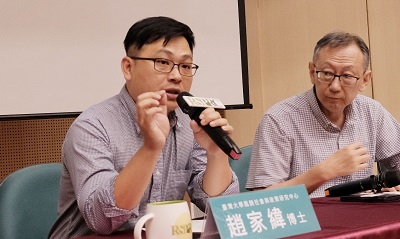The keynote speaker for this session was Tsutomu Sato, currently serving as Counselor of the Strategy Development and Management Bureau at Japan's Financial Services Agency, as well as Senior Research Fellow at the Nakasone Peace Institute (NPI). With extensive experience in Japan's energy transition and international financial governance frameworks, Mr. Sato delivered a lecture titled "Japan's Green Transformation and Transition Finance." His presentation offered a comprehensive analysis of Japan's practical experience in advancing carbon neutrality, examining the issue from four key dimensions: historical context, policy development, institutional frameworks, and market dynamics.
The 2025 Corporate Sustainability Disclosure Readiness Survey, conducted by the NTU RSPRC, was released in this session. The discussion was moderated by Kuei-Tien Chou, Director of the NTU RSPRC; Assistant Professor Ya-Ting Kuo of Asia Eastern University of Science and Technology and Assistant Professor Chung-Pei Pien of National Chengchi University were invited to present their analyses of the survey findings.
The forum started with a speech by Shien-Quey Kao, Deputy Minister of the National Development Council. She stated that, in addition to presenting NTU RSPRC’s findings on corporate sustainability preparedness, this year’s forum also provided valuable reference for the government in evaluating corporate environmental, social, and governance (ESG) performance and formulating related policies.
The theme of the third session was "European Union (EU) Social Taxonomy and Sustainability Transition", which was moderated by Sue-Ching Jou, Professor of Geography at the National Taiwan University (NTU). The session began with an introduction by Chien-Hung Tung, Deputy Minister of the Interior. The discussants included Chi-Jui Huang, Professor of Finance and Cooperative Management at NTU and Associate Professor Ping-Lung Hsin, Associate Professor of the Graduate Institute of National Development at NTU.
Since 2016, the Fubon Cultural and Educational Foundation has partnered with the Risk Society and Policy Research Center of the National Taiwan University (hereinafter referred to as NTU RSPRC). Through energy transition projects, they have established a model for collaboration between corporate foundations and academic research centers. Last year, the Fubon Group rebranded the "Fubon Globalization Forum" as the "Fubon Forum on Sustainable Future" and worked with NTU RSPRC to promote Taiwan's social consensus on sustainable development and to connect scientific research and advocacy with respect to international issues. This year, with the theme "Collaboration between Industry and Finance: Bridging the Sustainability Transition Gap," the Fubon Forum on Sustainable Future explored the global issues and social impacts experienced by financial institutions and their related enterprises and industries when addressing environmental, social, and governance (ESG) challenges, reflecting the forum's vision for sustainability.
Session Four with the theme "Multiple Global Crises - Key Analysis of 2023 World Economic Forum" was kicked off with a lecture by Sophie Heading, a representative of the World Economic Forum. Based on the Global Risks Report 23, Sophie discussed the concept of multiple crises and pointed out that current global risks are interconnected. When a set of risks fluctuate simultaneously and spread in various spheres, there will be a cascading effect, triggering multiple crises. Therefore, it is important to understand the trend of the overall structure and how geopolitical and economic conditions drive the occurrence of multiple risks. Sophie stated that due to changes and conflicts in geopolitical dynamics, we may witness rapid outflow of funds and technology in the next two to ten years. In addition, rapid inflation, natural disasters, extreme weather events, and commodity price volatility are also among the top five risks for countries. Sophie also cautioned in the risk report that as global economic dynamics have the potential to catalyze many risk issues, countries need to strengthen regulations and controls to prevent further exacerbation. For example, geopolitical conditions have an impact on debt dynamics; if the global debt burden approaches or even exceeds the global commodity value, it will pose risks such as debt distress and increased capital and financing costs to the economy.
In the second session that immediately followed, the industrial climate risk research team at the Risk Society and Policy Research Center of National Taiwan University (hereinafter referred to as "NTU RSPRC") addressed the key issue of "Task Force on Climate-related Financial Disclosures (TCFD)"for this forum, and released the "TCFD Survey Report: Challenges of Carbon Intensive Industries in Achieving Net-zero Transition". The survey release was hosted by Kuei-Tien Chou, Director of RSPRC, with the support of Postdoctoral Researcher Ya-Ting Kuo and Assistant Researcher I-Meng Chao who conducted the investigation. Dr. Kuo presented key findings of the survey and Postdoctoral Researcher Mu-Xing Lin joined the final discussion. The survey was conducted jointly by RSPRC, Fubon Financial Holding CO., Ltd., and the Center for Sustainability Science of the Academia Sinica. A total of 900 companies were surveyed from February to April of this year (2023).
Extreme climate changes, the COVID-19 crisis, geopolitical tensions, and global inflation, coupled with the international net-zero carbon emissions trend, have raised questions about the path toward sustainability in Taiwan. The Risk Society and Policy Research Center of National Taiwan University (NTU RSPRC), in collaboration with Fubon Financial Holding CO., Ltd. and Fubon Cultural and Educational Foundation, hosted the 2023 Fubon Forum on Sustainable Future, centered around the theme of "Key Transformations for Taiwan in the Face of Multiple Global Crises". Building upon the backdrop of the Global Risks Report 2023, which was recently released by the World Economic Forum, the forum examined the complex, multiple crises brought about by the COVID-19 pandemic, severe climate changes, geopolitical tensions, and global inflation, and explored how Taiwan can rethink its future positioning and build resilience in its society, economy, and energy under the pressures of net-zero transition and climate emergencies.
The afternoon session of the press conference "A Survey on the Awareness of Just Transformation of Taiwan's High Carbon Emission Industries" was moderated by Kuei-Tien Chou, Director of NTU RSPRC, and Jui-Keng Wang, a postdoctoral researcher of NTU RSPRC, reported the important findings of the study.
The morning session was opened by Kuei-Tien Chou, Director of the NTU RSPRC, and Daniel Tsai, Chairman of Fubon Group, was the guest speaker. Director Chou said that the international community is currently affected by both climate disasters and geopolitics.
The lecture was kicked off by Chou, Kuei-Tien, the director of the NTU RSPRC and the organizer of this event. Chou, Kuei-Tien emphasized that the NTU RSPRC, as a policy platform for Taiwan’s net-zero transformation, has made numerous efforts together with the Fubon Group internationally and domestically in climate change. At the same time, he also extended much of his gratitude to the forum participants from various organizations for joining this important discussion.
The National Taiwan University (NTU) Risk Society and Policy Research Center (RSPRC) held its annual Fubon Globalization Taiwan Risk Society Forum on 25 June 2019, on the topic of, 'Using the Circular Economy to Overcome Global Warming'.
This article summarizes the main points covered during the late afternoon session (part 4).




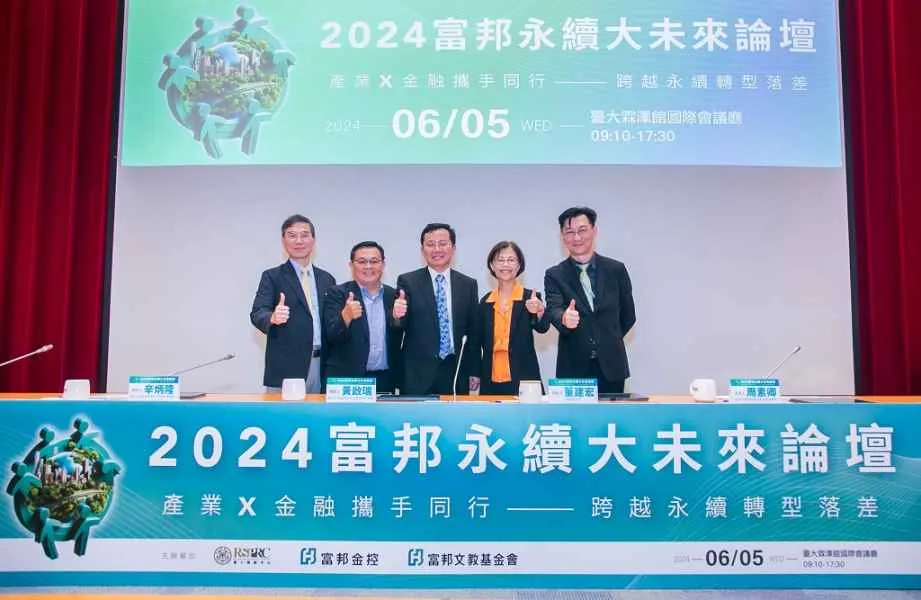
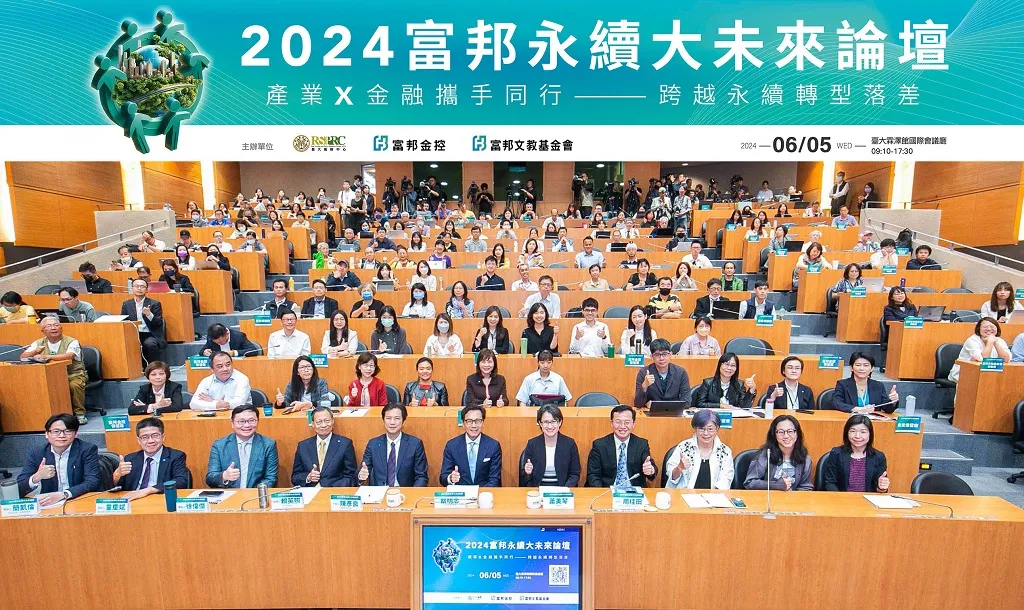
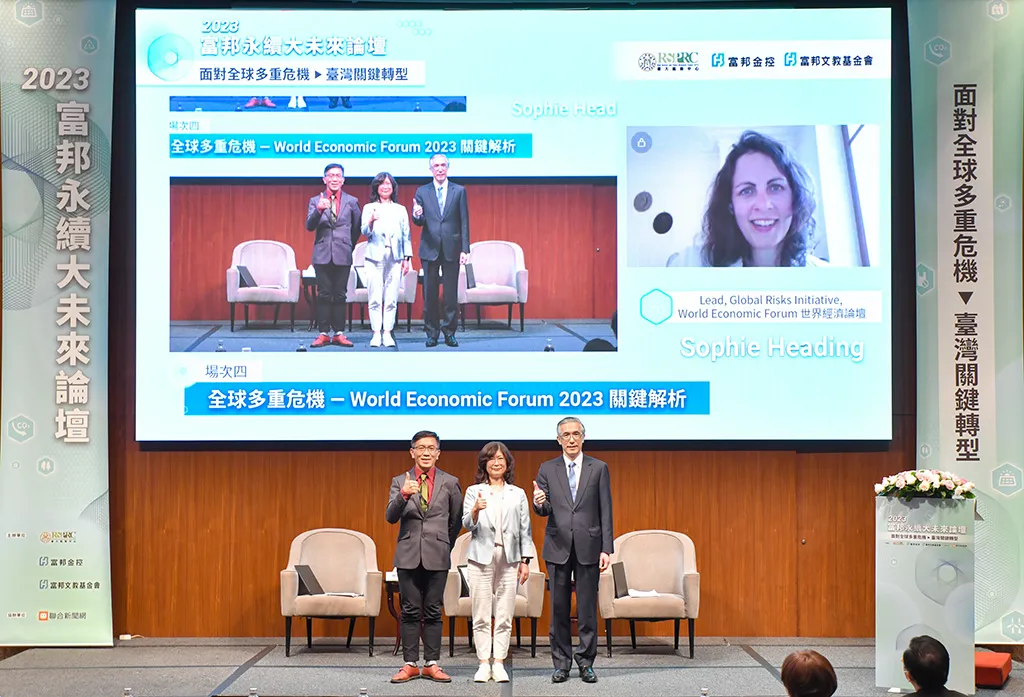
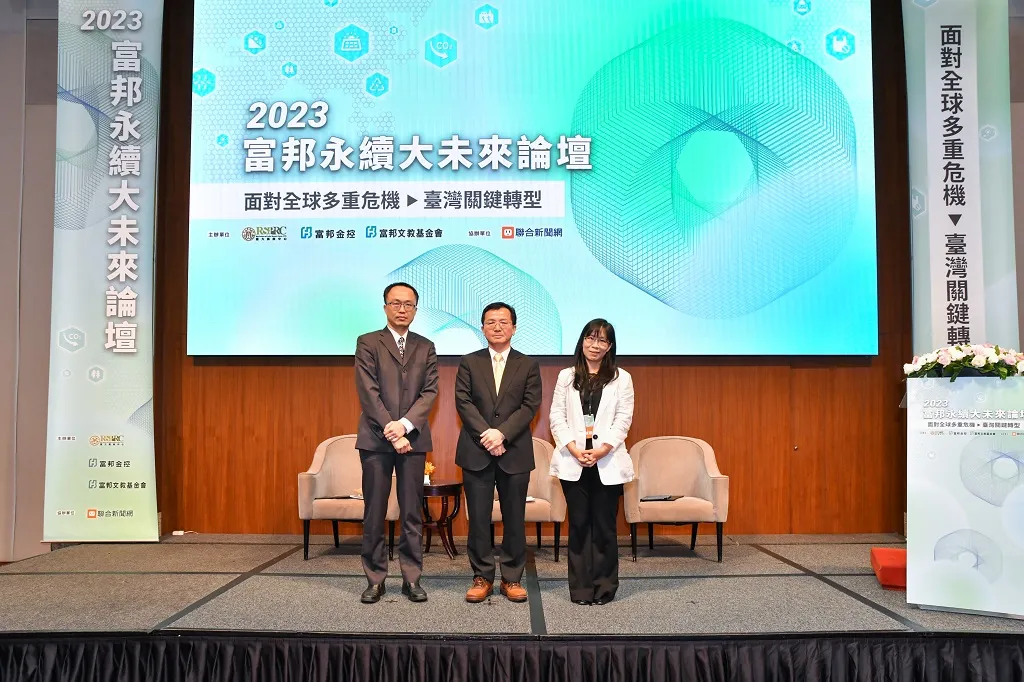
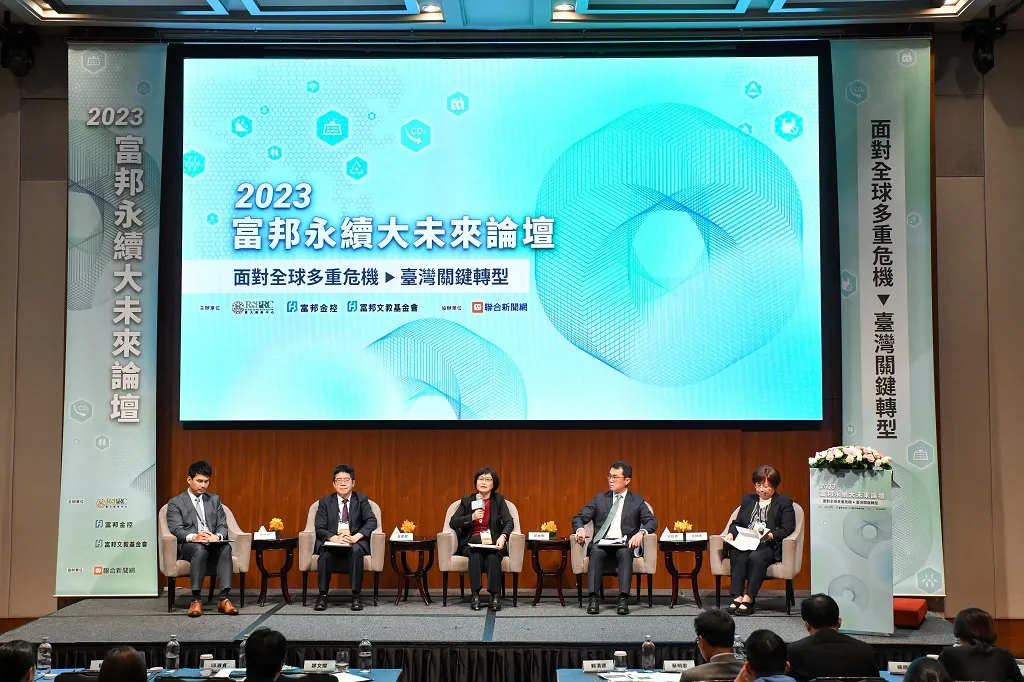

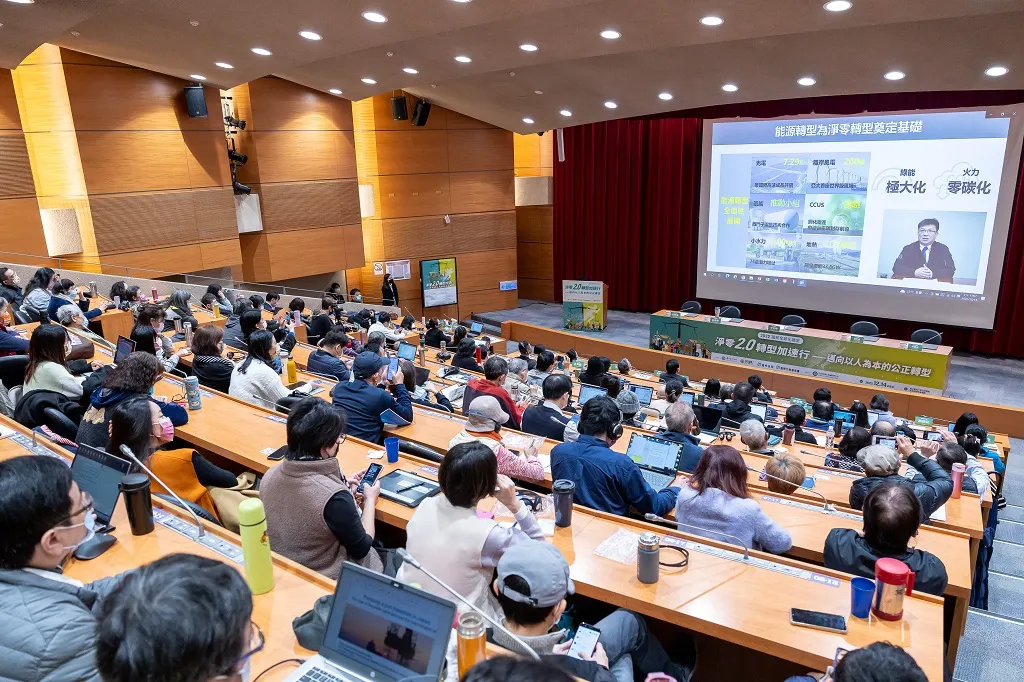
.jpg)
